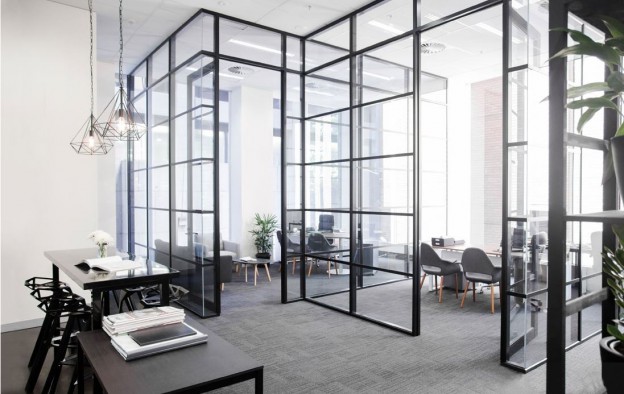Installing an air conditioning (AC) system is a significant move that requires careful consideration. An efficient and well-designed AC system can provide comfort and improve indoor air quality, making your office a haven during the hot summer months. However, choosing the right AC system involves several factors that go beyond simply selecting the right size or brand. In this blog post, we will explore the key factors you need to consider when installing an AC system. By understanding these factors and making informed decisions, you can ensure optimal cooling performance, energy efficiency, and long-term satisfaction with your AC installation.
Cooling Capacity and Sizing
Determining the cooling capacity and sizing of your AC system is crucial for efficient and effective cooling. An AC system that is too small will struggle to cool your office adequately, while one that is too large may cycle on and off frequently, leading to energy waste and inconsistent temperature control. To determine the appropriate cooling capacity, factors such as the size of your office, insulation, ceiling height, and number of windows should be considered. Consulting with an HVAC professional can help you accurately calculate the cooling load and determine the right size of AC system for your specific needs.
Energy Efficiency
Energy efficiency is a key consideration when installing an AC system, both for environmental reasons and cost savings. Look for AC systems with high Seasonal Energy Efficiency Ratio (SEER) ratings, as higher SEER ratings offer greater energy efficiency. ENERGY STAR-certified AC systems are also a great option, as they meet strict energy efficiency guidelines set by the Environmental Protection Agency. Additionally, features such as variable-speed compressors and programmable thermostats can optimize energy usage by adjusting cooling levels based on your specific needs. Prioritizing energy efficiency not only reduces your carbon footprint but can also lead to significant long-term savings on your energy bills.
Ductwork Evaluation and Airflow
Before installing a new AC system, it is important to evaluate your existing ductwork. Proper airflow is essential for efficient cooling and balanced temperature distribution throughout your office. Inadequate or leaky ductwork can result in energy loss and uneven cooling. Consider having an HVAC professional inspect and assess your ductwork for any leaks, obstructions, or insulation issues. If necessary, they can recommend repairs or improvements to optimize airflow and ensure optimal performance of your new AC system. Proper duct sealing and insulation can help prevent air leaks, minimize energy loss, and improve indoor air quality.
Indoor Air Quality
Installing an AC system provides an opportunity to improve indoor air quality. Look for AC systems with built-in air filtration capabilities, such as high-efficiency particulate air (HEPA) filters or electrostatic filters. These filters can trap dust, pollen, pet dander, and other airborne particles, reducing allergies and respiratory issues. Additionally, consider features like UV lights or photocatalytic oxidation to combat bacteria, viruses, and mold spores. Integrating a whole-house ventilation system into your AC system can also help bring in fresh outdoor air while expelling stale indoor air. Improved indoor air quality contributes to a healthier work environment.
Noise Levels
The noise produced by an AC system can impact your overall comfort and enjoyment. Consider the noise levels of the AC units you are considering, especially if you have bedrooms or living areas close to the outdoor unit. Look for AC systems with low decibel (dB) ratings, as quieter operations can minimize disruptions and ensure a peaceful indoor environment. Manufacturers often provide noise level information for their AC units, allowing you to compare and choose the quietest option that meets your cooling requirements. Additionally, consider the operating modes or features that offer quieter operation, such as a “sleep” mode that reduces fan speed or a “quiet” mode that minimizes noise during nighttime operation. By prioritizing low noise levels, you can create a serene and tranquil atmosphere in your office.
Maintenance and Service
Regular maintenance and service are essential to keep your AC system running smoothly and efficiently. Before installing a new AC system, consider the maintenance requirements and availability of service providers in your area. Check out Lex Air Conditioning if you live in the area so you can get ahead of it as soon as today. Look for AC systems that offer easy access to filters and other components for cleaning or replacement. Additionally, inquire about warranty coverage and after-sales service options. Proper maintenance, including regular filter cleaning or replacement, coil cleaning, and system inspections, can prolong the lifespan of your AC system, optimize its performance, and prevent costly repairs. It is also beneficial to establish a relationship with a reputable HVAC service provider who can provide routine maintenance and address any issues that may arise.
When installing an AC system, several key factors should be considered to ensure optimal cooling performance, energy efficiency, and overall satisfaction. From determining the appropriate cooling capacity and considering energy efficiency to evaluating ductwork and prioritizing indoor air quality, each factor plays a crucial role in creating a comfortable and healthy living environment. Additionally, factors such as noise levels and maintenance requirements should not be overlooked. By carefully considering these factors and consulting with HVAC professionals, you can make informed decisions that result in a well-designed and efficient AC system that enhances your office’s comfort and provides long-term value.
Need Office Space? We can Help for FREE!


